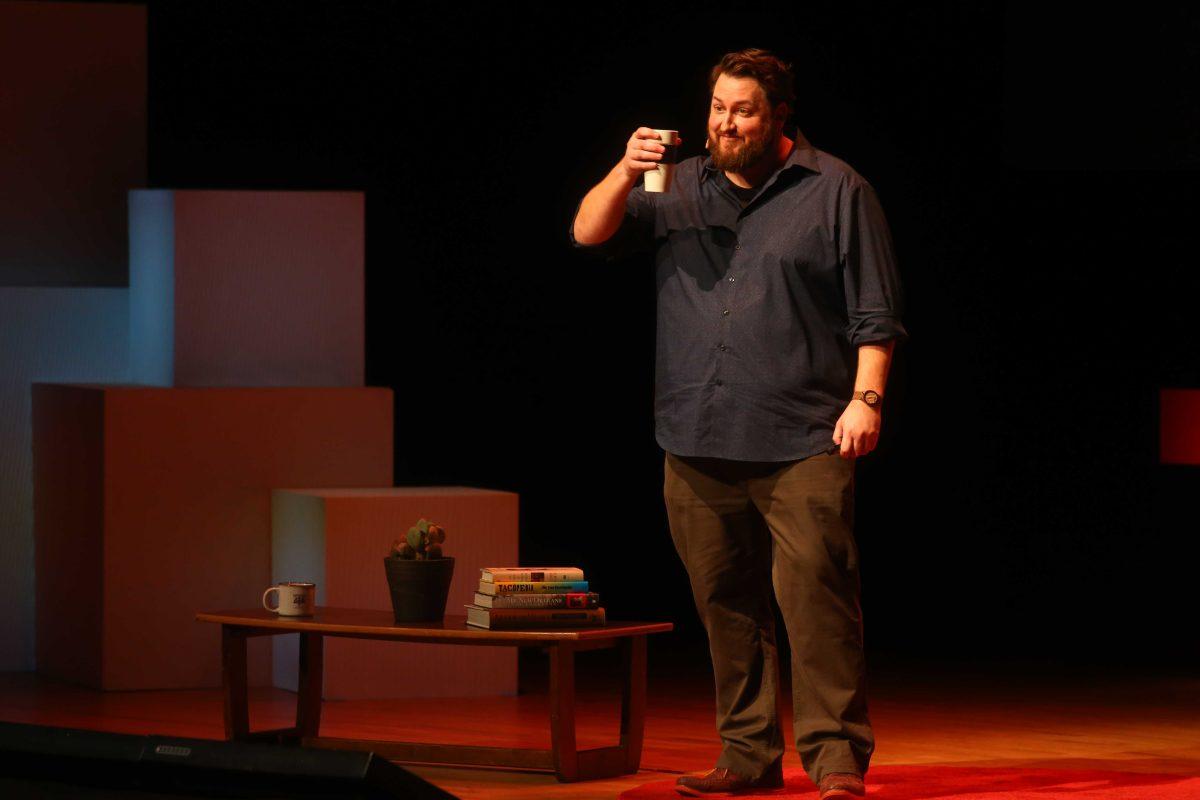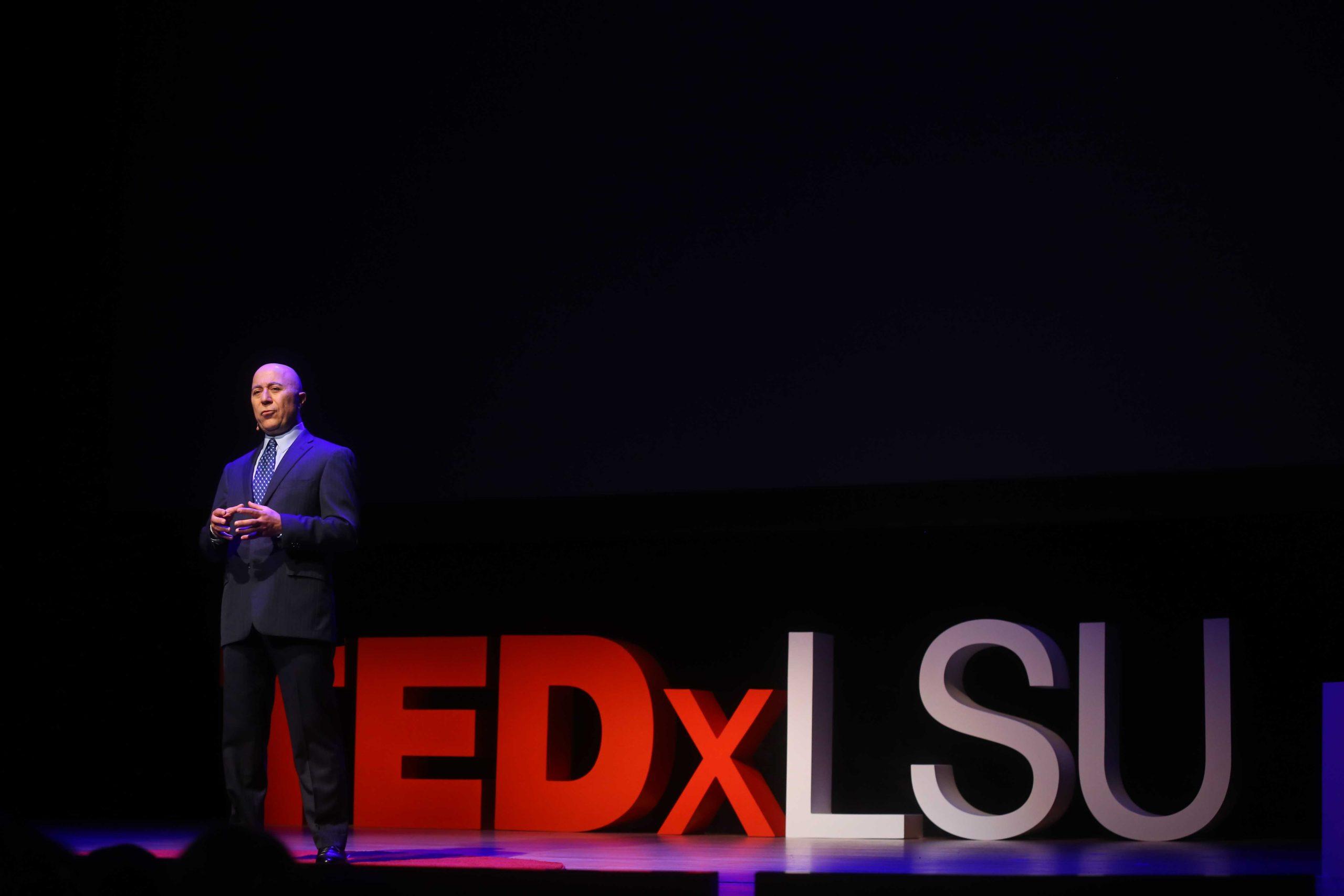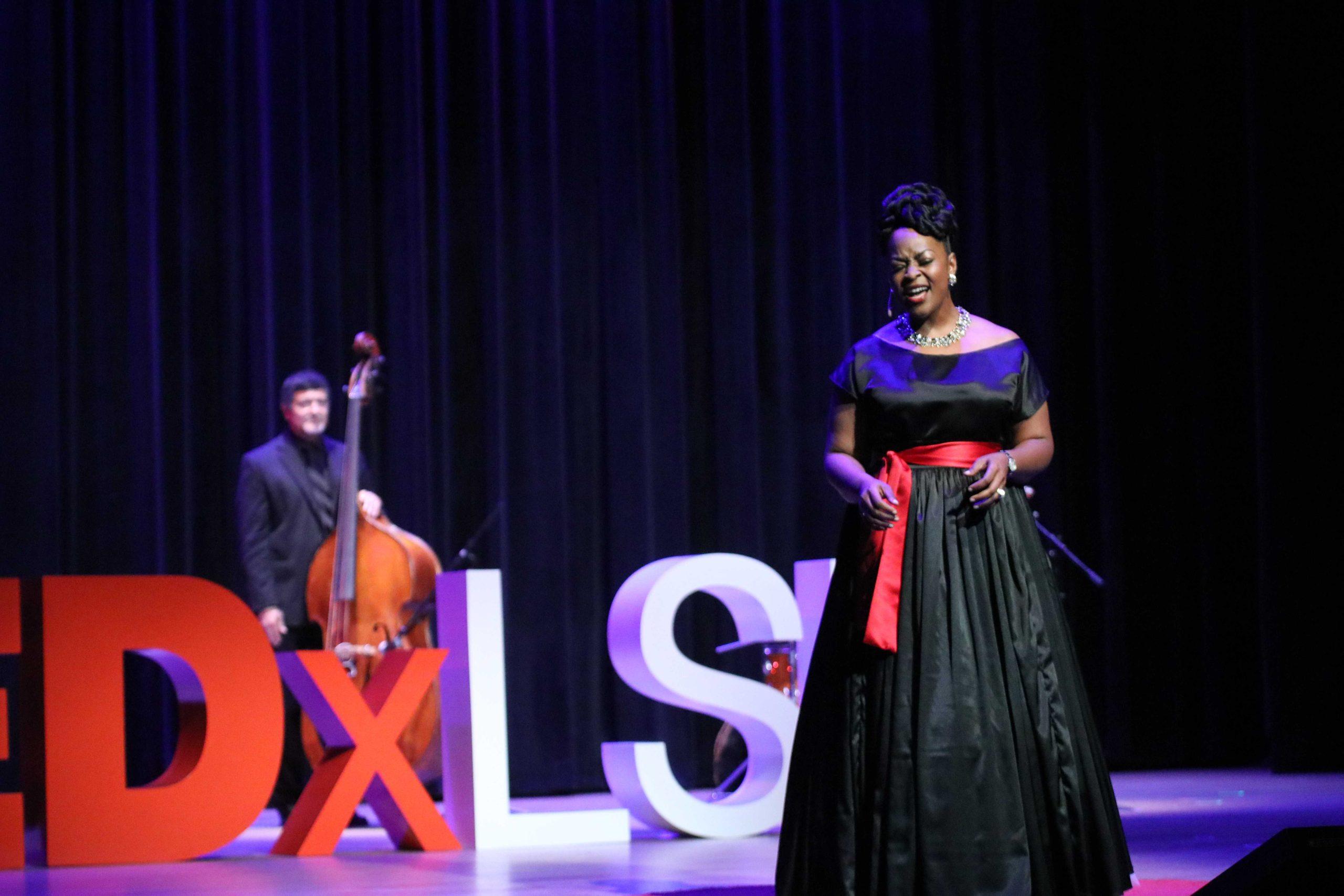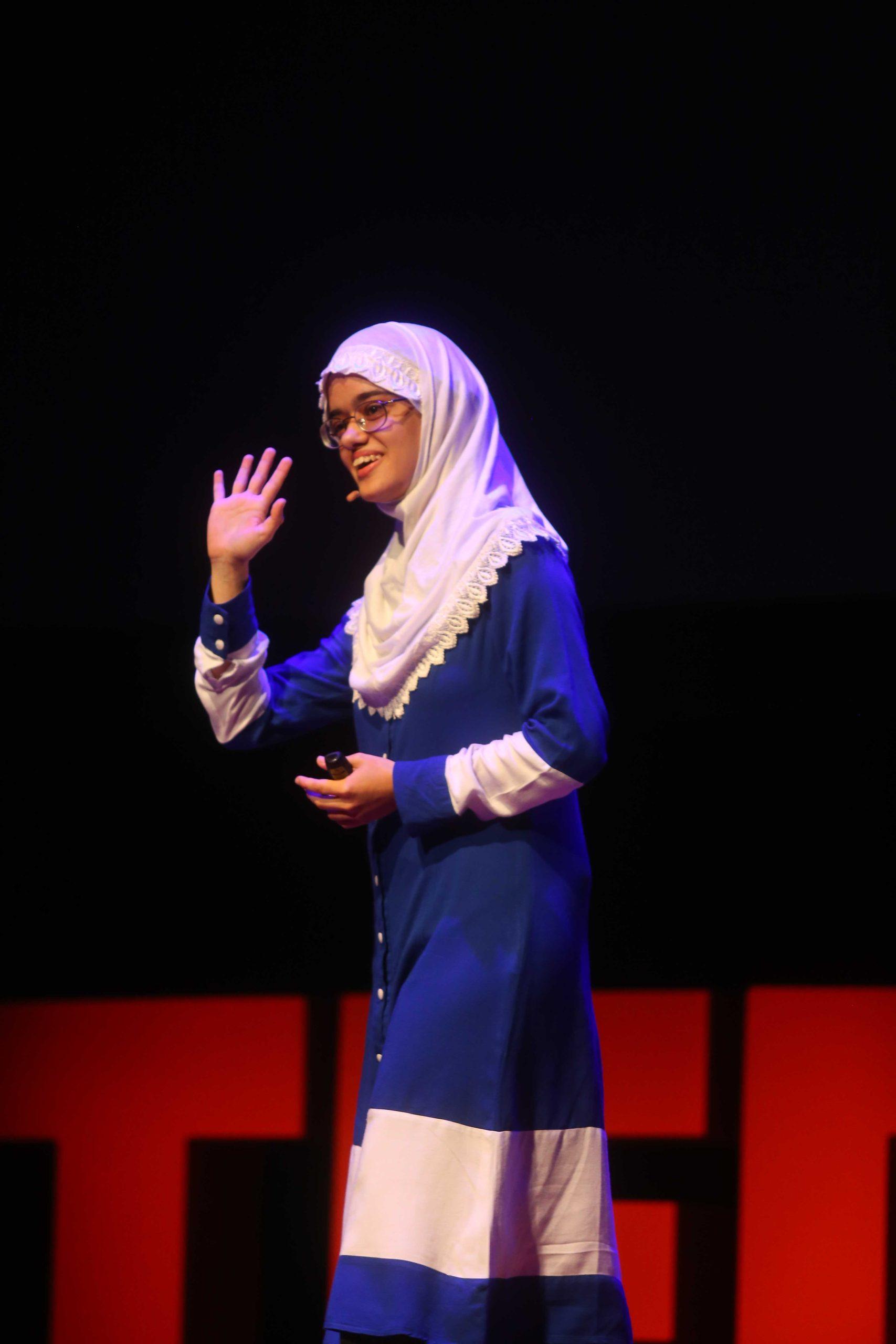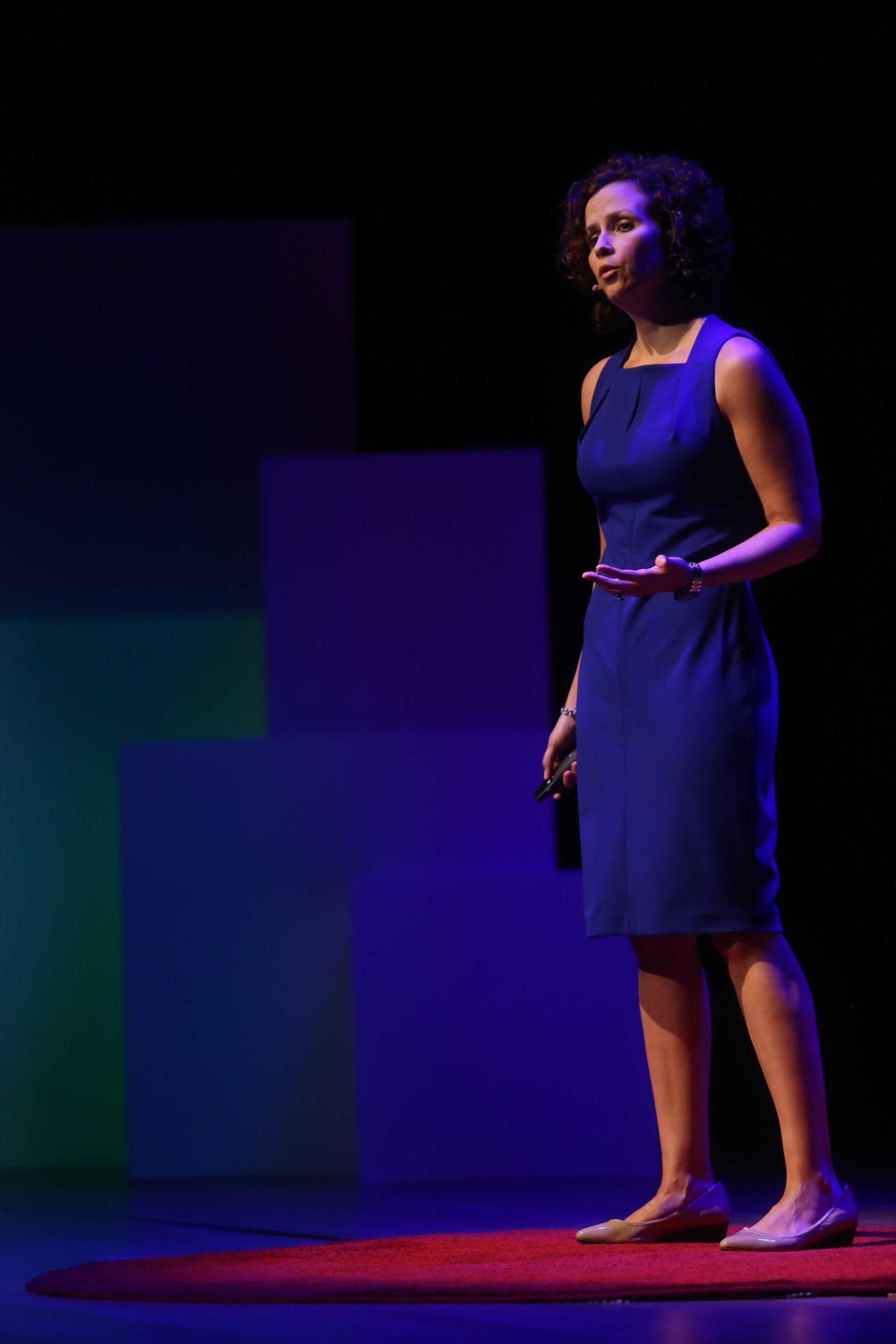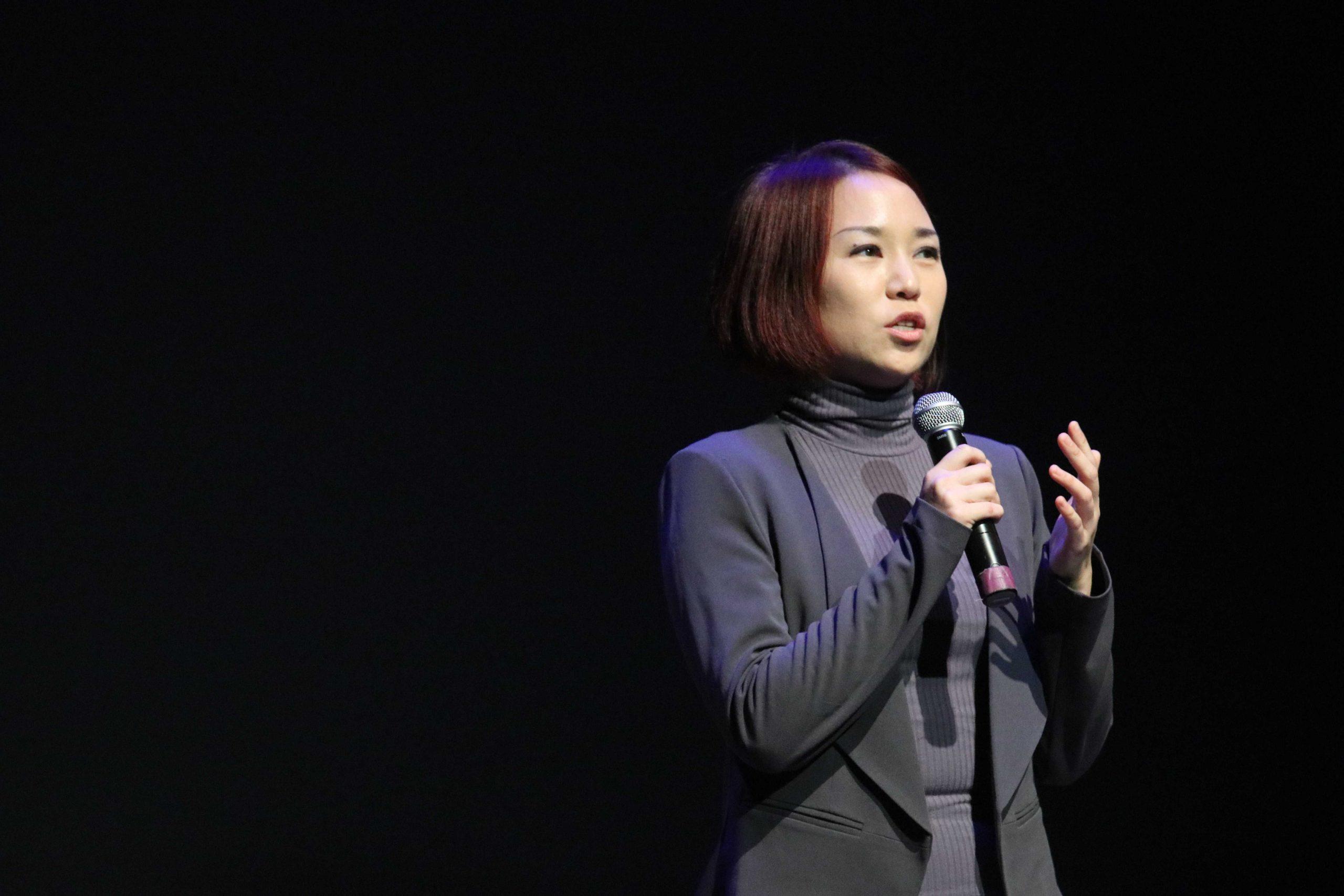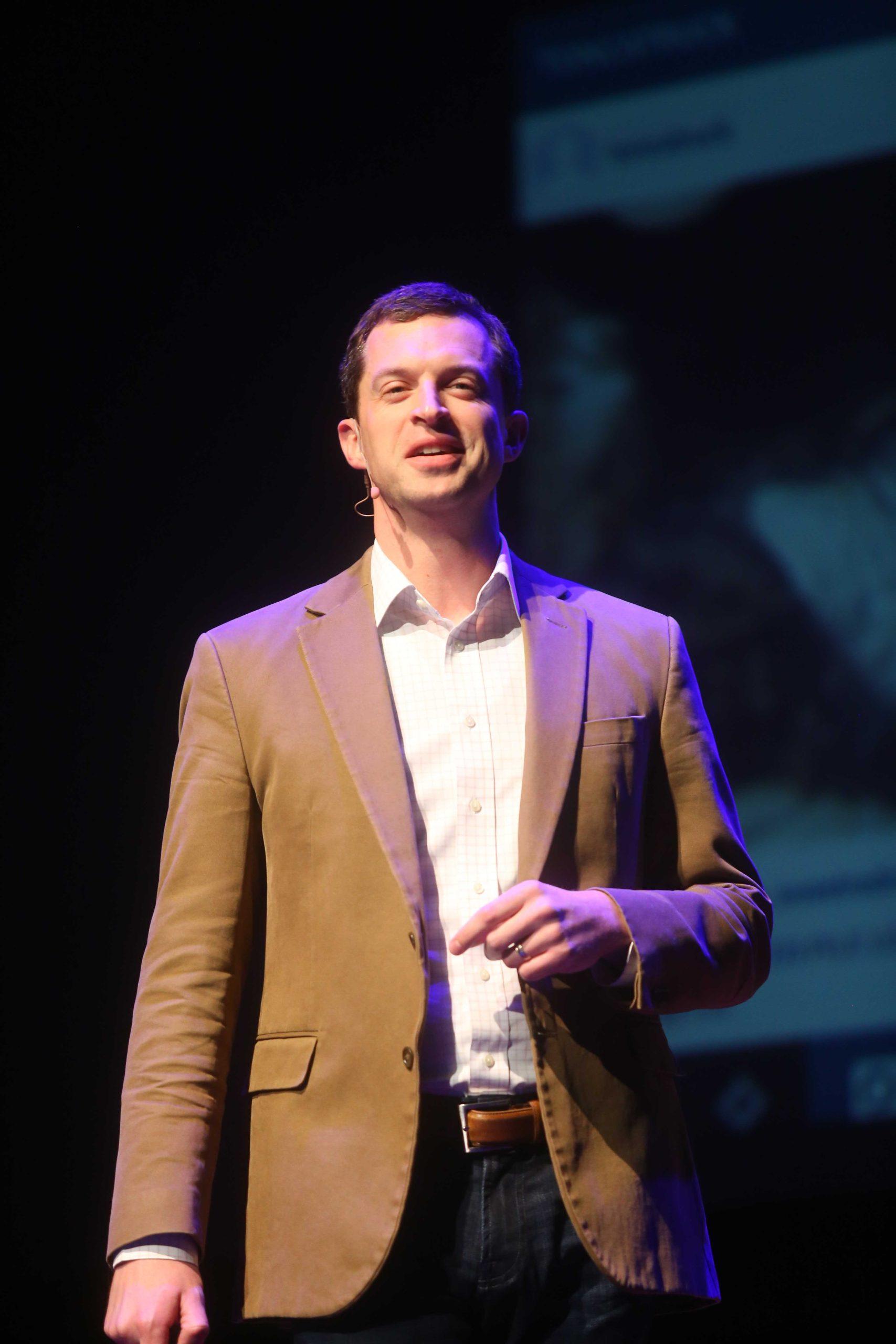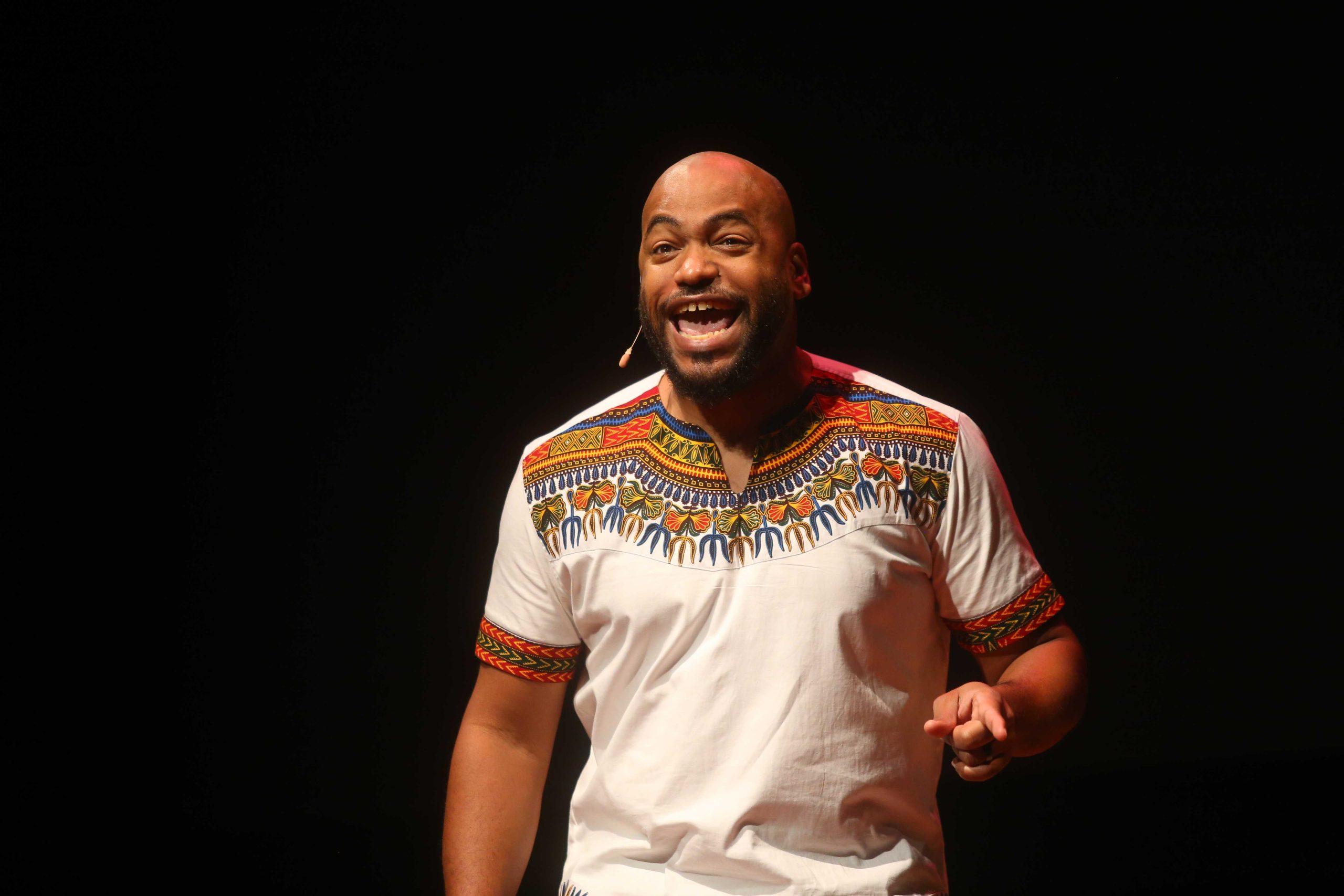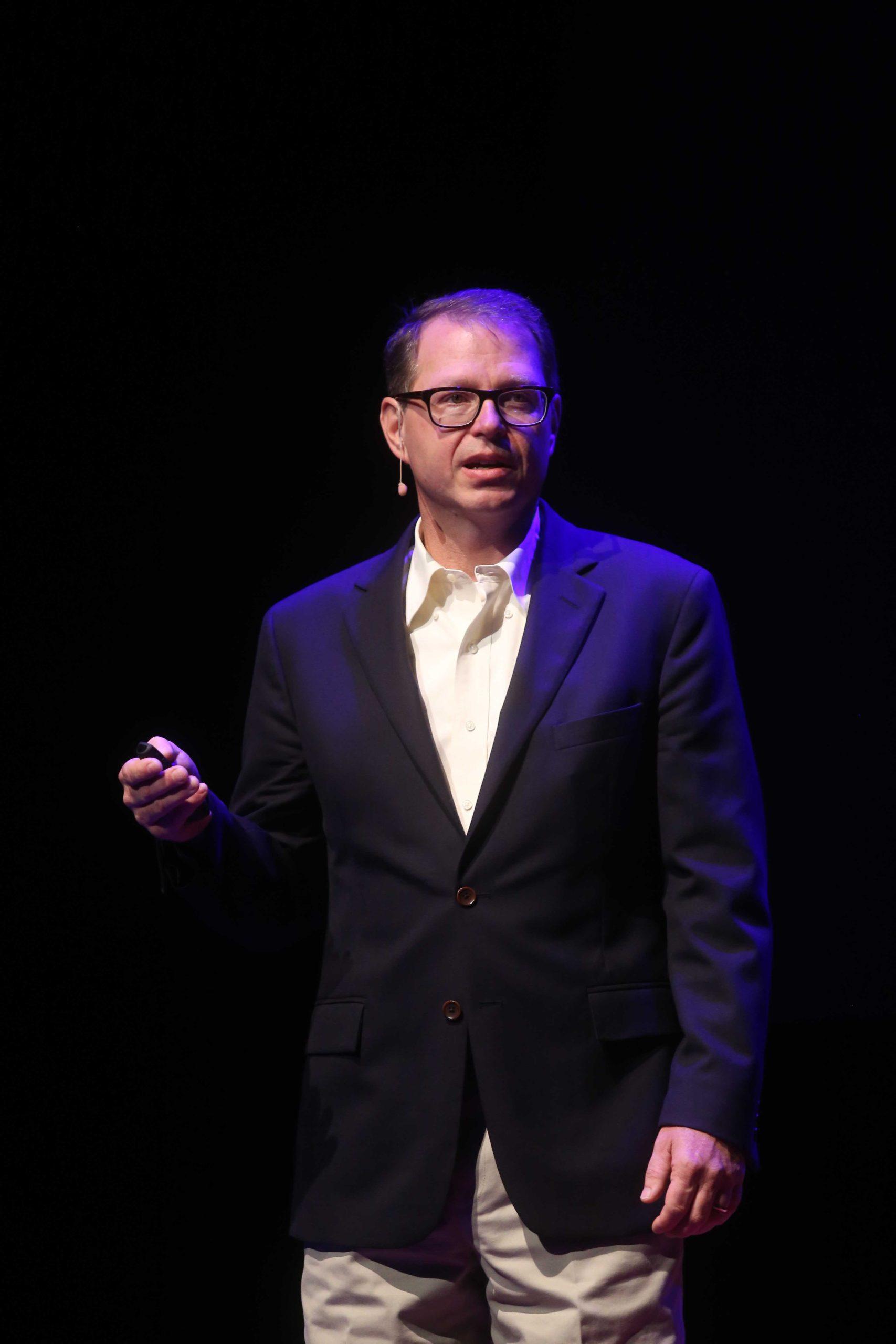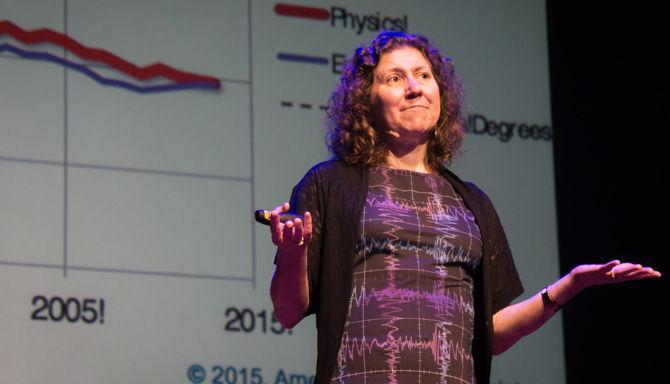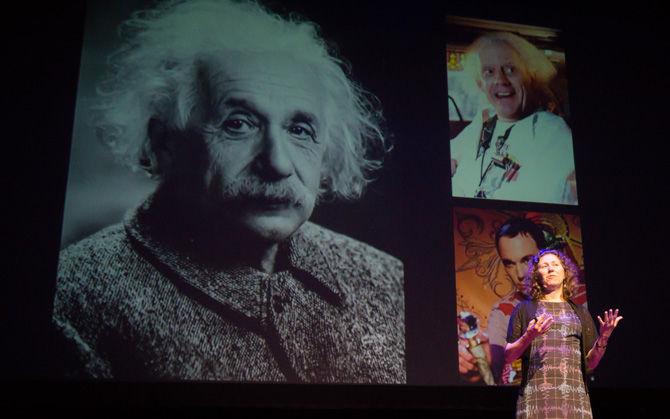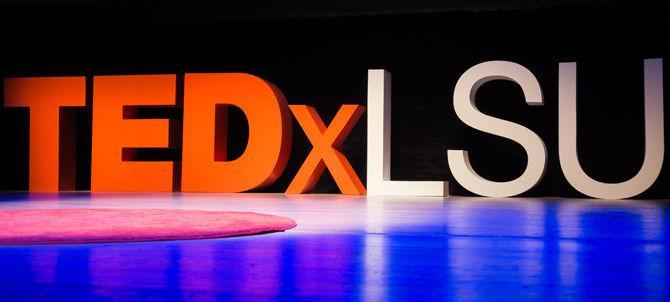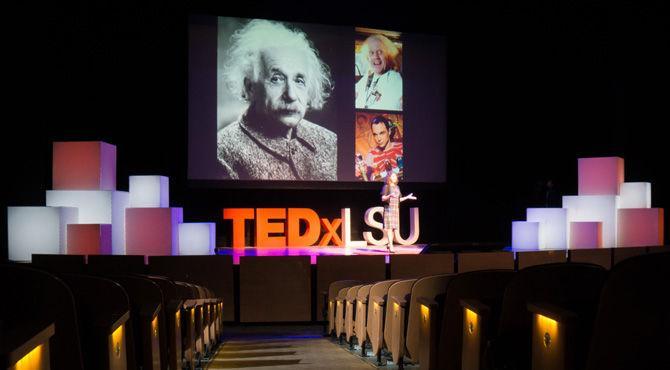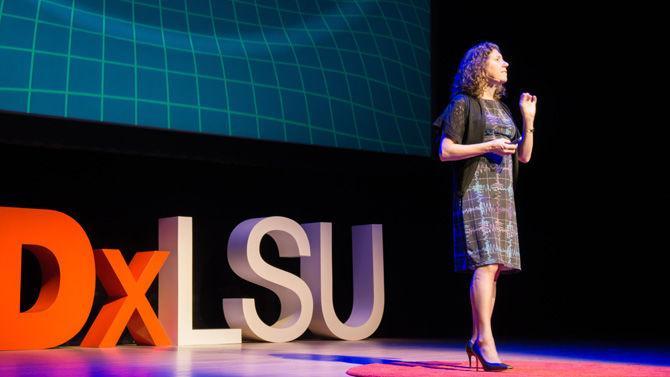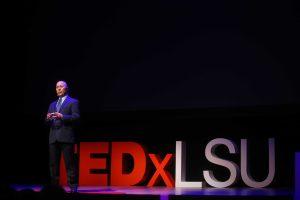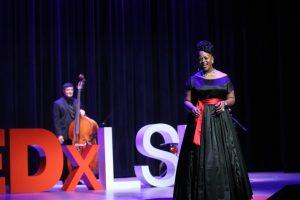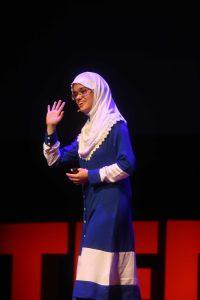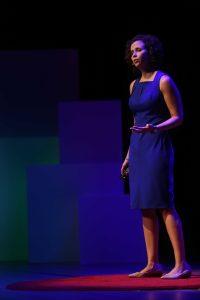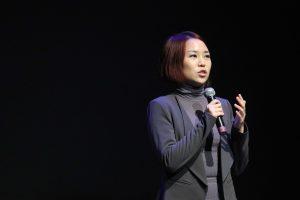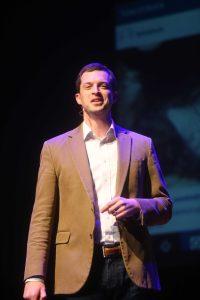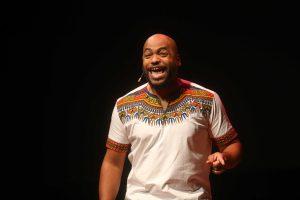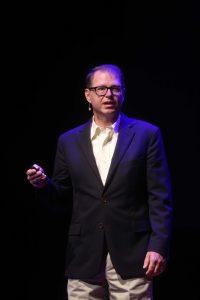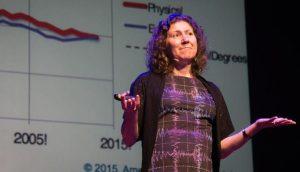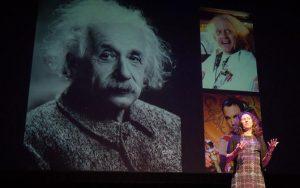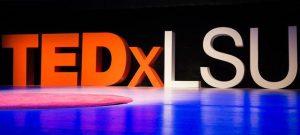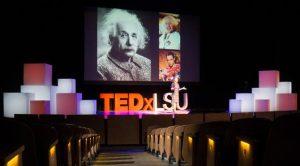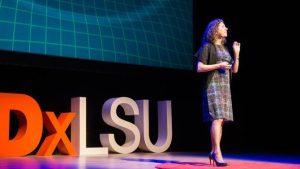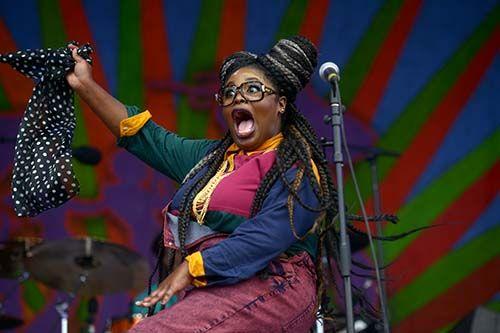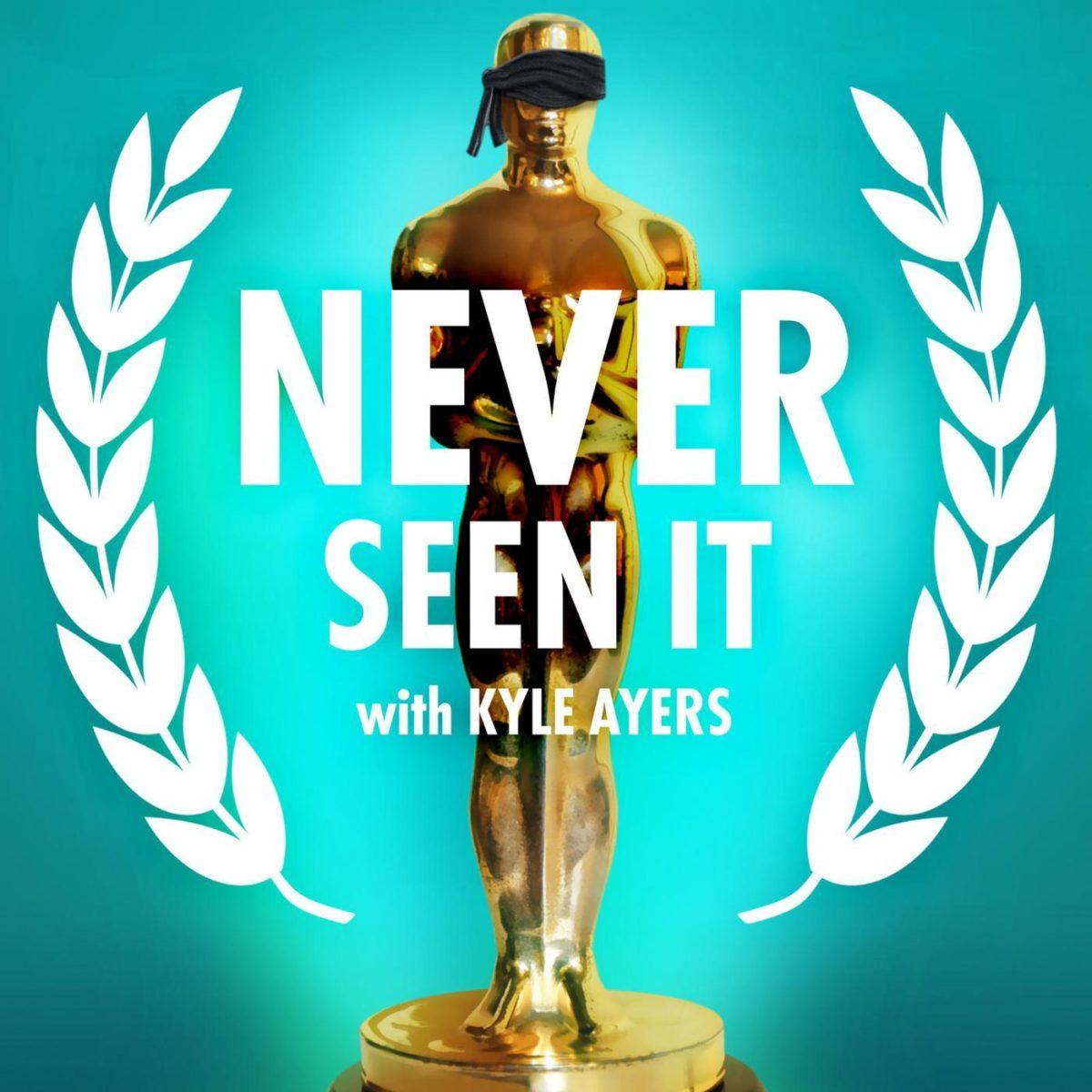Teeming with innovation, motivation and entertainment, the fifth annual TEDxLSU event brought together 13 local speakers to the LSU Student Union Theatre in the name of sharing new ideas.
The speakers, many of whom are LSU graduates, have careers in a wide variety of fields. Some are artists, some are scientists and some are chefs, but all of the presentations fell under one common theme: how one simple idea has the potential to cause a chain reaction that can change the world.
Jay Ducote
The event’s first speaker was Jay Ducote, a Baton Rouge chef and entertainer whose culinary career was kickstarted by a food blog he started in 2009. What began as a side project while working as a policy researcher eventually snowballed into an award-winning radio show, Bite and Booze, along with appearances on Food Network programs like “Cutthroat Kitchen,” “Last Call Food Brawl” and “Food Network Star.” The focus of his speech, however, was his newest passion – coffee.
His fascination with coffee was ignited after his close friend told him about her travels to a small community in the Dominican Republic where the economy was almost entirely dependent on coffee production.
“The farmers there are some of the poorest in the world,” Ducote tells the audience. “They live in dirt floor shacks and cook on three rock stoves in their houses. They work from sun up to sundown. Despite putting in all of those hours, they have very little material wealth to show for it.”
Ducote’s friend, who travels to the community with a small team every spring, works with the local farmers to streamline growing, harvesting and processing techniques in an attempt to improve the coffee quality so that external markets will pay more for the commodity. The team also works to improve quality of life in the impoverished community through clean water initiatives and, in the near future, through the introduction of solar power.
Despite improvements in coffee quality, the team was having a hard time connecting farmers with the external buyers they so desperately needed. This is where Ducote stepped in, importing beans to Baton Rouge’s Cafeciteaux Coffee Roasters. The farmers, who were previously paid roughly five cents per pound for their beans, are now receiving two dollars per pound, significantly bolstering their revenues and overall quality of life. In May, Ducote will be making a trip to the Dominican Republic to meet the farmers, work in the fields and cook for the community.
“As I drink this damn good cup of coffee, which is unique, delicious and has my name on it, I’m reminded that sometimes all it takes is a cup of coffee to change the world,” Ducote says.
Naci Mocan
Naci Mocan is a University economics professor with a penchant for determining the role of economics in everyday decisions. His speech primarily focused on how economic factors can result in discrimination based on skin color, ethnicity, gender, religion, national origin or sexual identity. To illustrate this, he provided examples of how economic circumstances throughout history have influenced feelings of hate and ethnic discrimination in Germany.
His first example spanned a period of over 600 years, between the 14th and 20th century, when roughly half of Europe’s population died as a result of the Black Death. Because no one knew the origin of the disease or its cure, minorities, especially people of Jewish descent, were blamed for the disease. This led to widespread hatred and distrust of Jews throughout the continent.
Six centuries later, in the German election of 1928, Adolf Hitler’s platform was deeply rooted in similar anti-Semitism. When researchers analyzed the election’s voting records region by region, they found the areas of Germany that murdered Jews at the highest rate during the period of the Black Death were the same areas that provided the strongest support for the Nazi Party. Through his research, Macon showed this pattern persisted past the 1928 election and into the 21st century.
“We found that if a person lives in an area of Germany that provided stronger support for the Nazi Party in the 1928 election, that person is more likely to express stronger anti-Semitic feelings today in comparison to a similar German who lives elsewhere in the country,” he says.
By surveying samples of the German population, Mocan discovered a direct link between a person’s economic standing and his or her likelihood to agree with discriminatory statements. If a person feels that his or her economic well being is secure, feelings of racism are subdued; conversely, if a person feels that his or her economic outlook is uncertain, racist sentiments become more prevalent.
“It is important for politicians and policy makers to understand that a recession, such as the Great Recession of 2008, doesn’t only increase unemployment rates and reduce incomes,” Mocan tells the audience. “It also intensifies racist and xenophobic feelings. This is an unfortunate and unrecognized byproduct of a recession.”
Quiana Lynell
Quiana Lynell is a jazz singer and songwriter native to Baton Rouge who also works as a vocal coach at Loyola University in New Orleans. Accompanied by jazz musicians on stage, she showcased her vocal range for the TEDxLSU audience in short bursts throughout her presentation.
Lynell explained how she treats her career in music as an entrepreneurial venture, and stressed the importance of surrounding herself with people who are as passionate about their careers as she is about her singing.
“I surround myself with individuals who also navigate greatness,” the singer says. “I’m going to be humble enough to invite other people to help me reach my goals.”
Ahsennur Soysal
Ahsennur Soysal is a University alumnus who launched an innovative social media campaign focused on tracking foxes in the Baton Rouge area. The campaign invites other Baton Rouge residents to upload fox sightings on her Facebook page, Fox Finders of Baton Rouge, or on Twitter and Instagram with the hashtag #FindFoxLSU.
“Being the elusive creatures they are, we wanted to learn about our local foxes and the humans who suspectedly or unsuspectedly live alongside them,” Soysal explains to the audience. “Particularly, we wanted to gather information about the fox’s ecology, such as their number, diet, distribution and interaction with the urban habitat.”
To encourage community involvement, Soysal broadcasted the campaign on a number of local news outlets and posted flyers throughout the city. The project has gained a substantial following, with nearly 1,500 likes on Facebook and over 200 unique fox sightings posted. Additionally, a handful of wildlife cameras placed in areas frequently visited by foxes have been able to capture footage of the elusive animals.
“We discovered how foxes teach their young to catch birds, mice and insects, which is great for pest control but is just one example of the role they play in our environment,” she says.
While she is delighted to see her efforts have helped to offset the misconception that foxes are nuisances to our cities, Soysal says her favorite aspect of the campaign is the community involvement that has essentially given way to a science project the entire city can take part in.
Tiffany Stewart
Tiffany Stewart is a University graduate who now works as the director of the Behavior Technology Laboratory at LSU’s Pennington Biomedical Research Center. Stewart, after suffering a number of gymnastics injuries in her youth, became interested in the disconnect between society’s physical appearance standards and actual functional health.
“We’ve normalized being unhappy with our appearance,” she says. “We struggle with the way we look, and health behaviors like eating, exercising and drinking water are marketed to us for the sole purpose of helping us look the way we think we should. There is a huge disconnect here between health, performance and appearance.”
Stewart spent years researching how a person can optimize his or her physical performance while maintaining mental stability in the process. In her presentation, she compared healthy living practices with architecture and design: function should always be emphasized over form. By analyzing the training programs that professional athletes and soldiers undergo, she found that prioritizing form over function could have dire physical consequences. For example, female athletes who put too much focus on their physical appearance may neglect to take in the nutrients they need for peak performance, resulting in diminishing bone density and making them more prone to injury.
“Maintaining good health and function is complex and individualized,” Stewart says. “The fact is, our bodies don’t all respond the same way to healthy behavior.”
Sandra Parks
Sandra Parks is a dancer and choreographer. She first spoke about the importance of collaboration for fostering the growth of ideas. Parks, along with nine other artists and engineers, developed a software that utilizes motion tracking cameras to visualize a body’s movement in the real world as an abstract piece of moving art on-screen. To demonstrate, Parks performed a five minute choreographed dance number as visuals were projected onto the screen behind her.
Chris Dykes
University alumnus Chris Dykes showed off his company, Clear Blue Design, which offers data solutions to businesses to streamline processes and automate manual tasks. Within his company, Dykes is working to launch his own social media app, Freebird, which will focus on idea sharing and eliminate some of the problems that have surfaced with other social media platforms.
He described what he views as the four main barriers causing idea suppression for social media users: fear, harassment, isolation and false praise. Freebird combats these four barriers, allowing users to freely share ideas anonymously, without fear of harassment, while still holding the user accountable for the content of the idea and allowing the user to specifically target geographic regions that he or she wants to broadcast the idea to.
“Anonymity levels the playing field,” Dykes says to the audience. “If it is not known whether an idea came from the janitor or the CEO, from the student or the university president, the oppressed citizen or the dictator, then the idea stands on its own merits, rather than the person who presented it.”
Freebird’s audience targeting mechanic will allow users to share ideas with geographic locations as small as their favorite coffee shop or as large as their city, state, country or world. With his app, Dykes hopes to create a marketplace of ideas in which users can receive honest and productive feedback without the added pressures of fear and harassment that accompany many popular social media platforms.
Chancelier “Xero” Skidmore
Chancelier “Xero” Skidmore, is an award-winning slam poet native to Baton Rouge. A self-professed “child of the hip-hop generation,” Skidmore has gained recognition in the local arts community by tackling hot-button issues in his poetry. He opened his TEDxLSU speech with a performance of a scathing poetic analysis of capital punishment. The centerpiece of his analysis was a boy named George Stinney Jr., who became the youngest person to ever be executed in the United States in 1944 at the age of 14.
“They grilled him without his parents present, fired his father from his job, threatened to fire shots at the family if they didn’t fire up a moving truck that night,” Skidmore recites to the audience. “And then they offered a 14-year-old boy an entire ice cream cone if he would just confess to a double murder.”
One year after he first recited this poem in 2013, a judge reversed Stinney’s verdict, posthumously clearing his name. While it is not likely that his poem played a role in the verdict’s reversal, Skidmore was reminded that all of our words and actions have the potential to create a chain reaction that has the power to influence events far removed from our own lives.
Cynthia Peterson
Cynthia Peterson is the dean of the College of Science and a lifelong piano player. In her presentation, she drew a comparison between two of her passions: jazz music and biochemistry. To Peterson, all science is like a fine jazz composition.
“There are three elements we typically associate with the music we know as jazz: the blues, swing and improvisation,” she tells the audience. “Taken in the same light, we can think of science as the burning problem, the experimental design and the creative process.”
In the same way that jazz musicians are able to improvise on an individual level in response to the improvisation of their band mates, collaborators in science are expected to learn from each other, building on the foundation of the entire team’s knowledge. Peterson is currently researching the networks of interactions between proteins that facilitate health during wound responses. In this role, she has collaborated with scientists from around the globe, seeking out creative solutions to the problems that her research hopes to remedy.
Wayne Newhauser
Dr. Wayne Newhauser is a medical physicist who is discovering new ways to implement 3D printing and scanning technologies in cancer treatment. With state-of-the-art full body 3D scanning technology, he believes that treatment and post-treatment life can be significantly enhanced for cancer patients.
“These scanners are used in the motion picture industry and in the textile industry to make quick measurements of the body in order to facilitate making personalized costumes and garments,” Newhauser explains to the audience. “I got very excited when I saw these new technologies coming out because I recognized instantly that we could use these right off the shelf in cancer therapy.”
With the scanners, researchers are able to use imaging techniques to plan a patient’s personalized treatment. Patients who undergo a full body scan are likely to have minimized tissue damage from drugs, radiation and surgery. Technologies that can scan and print a patient’s internal anatomy, which would significantly increase the likelihood of recovery, are currently in development.
Howard Hall
Howard Hall is a comedian and Baton Rouge native. After over 14 years of performing at venues throughout the country, Hall has comedy down to an exact science. He opened his TEDxLSU speech with a few minutes of traditional stand-up before breaking a few of his jokes down in order to demonstrate how he deliberately constructs each joke in a way that he knows will elicit a laugh from his audience.
Gabriela González
Gabriela González is part of the team that made international headlines after its discovery of gravitational waves in 2015. The existence of gravitational waves, or ripples in the fabric of space and time, was originally predicted by Albert Einstein in the early 20th century. Their existence was not proven, however, until Gonzalez and her team recorded evidence of the phenomenon at the Laser Interferometer Gravitational Wave Observatory (LIGO) in Livingston, Louisiana, two years ago.
“The announcement was about two black holes that had been dancing in an accelerating tango a billion years ago,” González says to the audience. “They were rotating around each other faster and faster, bending furiously the space time around them, producing gravitational waves, and then merging at about half the speed of light into a single black hole.”
González went on to stress the importance of encouraging female students to pursue degrees in STEM fields. While women have earned degrees in fields like biology and math far more frequently in recent years, the number of women graduating with degrees in physics and engineering have remained stagnant for several years, she said.
“Today, I am very happy to be in the spotlight as a woman talking about this big discovery of gravitational waves,” she explained. “But I dream of a day when there are enough women scientists that nobody notices my gender, and they just see another physicist.”
Lauren Pharr
TEDxLSU’s final speaker, Lauren Pharr, is a forensic anthropologist with expertise in the field of vulture scavenging and flight. In her presentation, Pharr spoke about the role Louisiana’s turkey vulture plays in forensic science. Through her research and her collaborations with forensic investigators, she proved the link between the study of patterns of vulture scavenging and more accurate identification of human remains
All of this year’s TEDxLSU presentations will be available for free on YouTube within the coming weeks. For more information the event visit its website.



